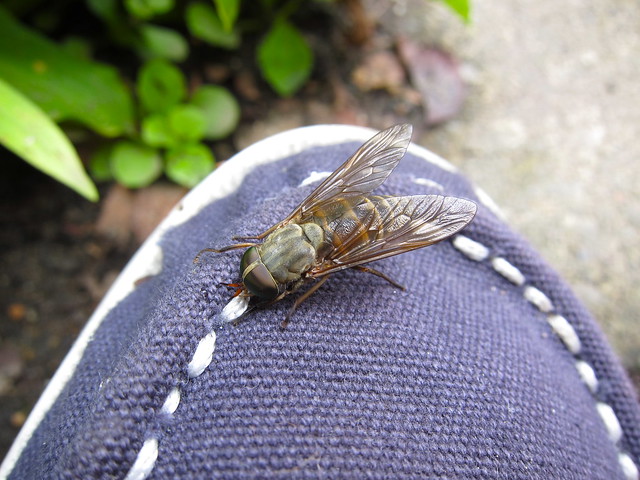In this post we explore the various meanings and origins of the word gad.
As an exclamation, gad! is a euphemistic alteration of the word God, and is the roughly equivalent of by God!, goodness gracious! and similar exclamations. It also appears in such exclamations as egad!, egads!, gadzooks!, gadsbobs!, gadsbudlikins! and gadsnouns!.
As a verb, to gad means:
- to move from one location to another in an apparently random and frivolous manner
- (of cattle) to run with the tail in the air, bent over the back, usually in an attempt to escape the warble fly
This comes from Middle English gadden (to go quickly, hurry, rush about), possibly from gadde. Related words include gadabout (a person who restlessly moves from place to place, seeking amusement or the companionship of others) and gaddish (inclined to gad, or move from place to place frivolously).
As a noun, gad means one who roams about idly, or a gadabout. This version comes from Middle English gade (a fool, simpleton), from Old English gāda (comrade, companion), from Proto-West Germanic *gadō, from Proto-Germanic *gadô/*gagadô (companion, associate), from Proto-Indo-European *gʰedʰ- (to join, unite).
The obsolete English word gadling (a companion in arms, fellow, comrade, a roving vagabond) comes from the same roots, as does the Dutch word gade (spouse), and the German word Gatte (spouse).
In Northern England and Scotland, gad is apparently used to mean a greedy and/or stupid person.
Finally, gad can mean:
- a goad, a sharp-pointed rod for driving cattle, horses, etc, or one with a whip or thong on the end for the same purpose
- a rod or stick, such as a fishing rod or a measuring rod
- a pointed metal tool for breaking or chiselling rock
- a spike on a gauntlet.
This comes from Middle English gad(de), from Old Norse gaddr (goad, spike), from Proto-Germanic *gazdaz (spike, rod, stake).
Words from the same roots include yard (a unit of length equal to 3 feet, a spar on a sail) in English, and gadd (stinger, sting, tooth) in Swedish.
Also from the same root in the English word gadfly, which refers to certain types of flies that irritate animals by buzzing around them and biting them to suck their blood, and by extension, a person of thing that irritates or instigates, or a person who takes without giving back. It is also a synonym of gadabout.
Sources: https://en.wiktionary.org/wiki/gad#English
https://en.wiktionary.org/wiki/gadfly#English
https://quod.lib.umich.edu/m/middle-english-dictionary/dictionary
https://www.etymonline.com/search?q=gad

Okay, I’ve heard about “egads” and “gadzooks”, but not “gadsbobs”, “gadsbudlikins” or “gadsnouns”! And I know gadzooks comes from “God’s hooks” but where do you think the latter three came from?
Apparently the words after gads are made up and added for emphasis. See: https://www.phrases.org.uk/meanings/146125.html